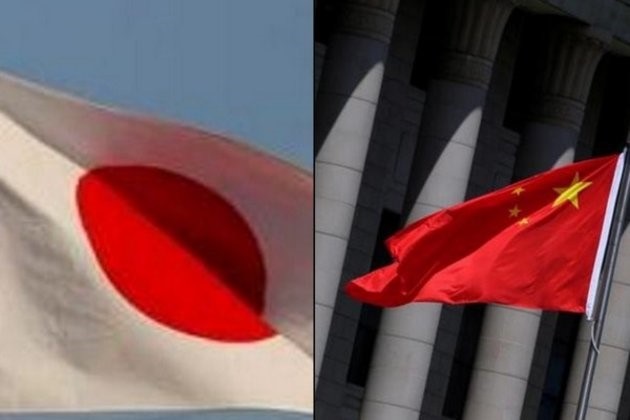China losing appeal for Japanese companies amid falling economy

A large number of Japanese companies including chip makers have begun moving out of China in the wake of President Xi Jinping’s zero -covid policy, and its impact on the economy, says a media report.
As many as 135 companies engaged in manufacturing semiconductors, cosmetic items, clothing, household appliances and motor vehicles have begun dismantling their operations in China, the Singapore Post reported.
Quoting Asahi Shimbun, the Singapore daily said that several Japanese companies are shifting their manufacturing bases from China to Vietnam, and to the South Asian region. Some companies are returning back home since “they feel the weaker yen is hurting their profits”.
Two months of lockdown in Shanghai, and tough COVID-19 restrictions in other parts of the country have led to disruptions in the manufacturing, logistics and tourism sectors.
About 90 per cent of Japanese products are manufactured abroad. Toyota, Honda, Nissan, Mazda, Suzuki, Kawasaki, Mitsubishi, Toshiba, Hitachi, Sony, Nikon, Canon, and Pioneer from the Japanese stable have their plants in China.
Citing a survey done by the Japan-based financial research and support services, The Singapore Post reported that as many as 249 Japanese companies left China between 2016 and May 2019.
However, in 2022, ongoing effort by Japanese companies to locate their manufacturing capacities outside China gained momentum as 135 companies have either left the Chinese shore or are on the verge of relocating them outside the Middle Kingdom.
Due to suspension of auto part plant operations owing to pandemic-related lockdowns in Shanghai and other parts of China, global production of Toyota Motor Corp, as per the Asahi Shimbun, declined by 9 per cent year-on-year to 690,000 vehicles, while Honda Motor Co, witnessed a 54 percent decline and Hino Motors Ltd recorded a 27 per cent drop.
Meanwhile, Chinese Premier Li Keqiang had said that China had reached its most difficult stage of economic stabilization and called on leaders of key provinces to coordinate efforts on economic recovery.
“The economy continued to recover in July, but small fluctuations are still present. We are now at the most tense stage of economic stabilization, so we need to build a solid foundation for economic recovery without wasting time,” Keqiang said at a meeting with leaders of the provinces of Guangdong, Jiangsu, Zhejiang, Henan, Shandong and Sichuan, as quoted by Xinhua news agency. Keqiang said that measures to combat COVID-19 must be coordinated based on the need to rebuild the economy.
- Report From Beijing Bulletin
-
Book Shelf
-
 Book Review
DESTINY OF A DYSFUNCTIONAL NUCLEAR STATE
Book Review
DESTINY OF A DYSFUNCTIONAL NUCLEAR STATE
- Book ReviewChina FO Presser Where is the fountainhead of jihad?
- Book ReviewNews Pak Syndrome bedevils Indo-Bangla ties
- Book Review Understanding Vedic Equality….: Book Review
- Book Review Buddhism Made Easy: Book Review
- Book ReviewNews Elegant Summary Of Krishnamurti’s teachings
- Book Review Review: Perspectives: The Timeless Way of Wisdom
- Book ReviewNews Rituals too a world of Rhythm
- Book Review Marx After Marxism
- Book Review John Updike’s Terrorist – a review
-
-
Recent Top Post
-
 NewsTop Story
What Would “Total Victory” Mean in Gaza?
NewsTop Story
What Would “Total Victory” Mean in Gaza?
-
 CommentariesTop Story
The Occupation of Territory in War
CommentariesTop Story
The Occupation of Territory in War
-
 CommentariesTop Story
Pakistan: Infighting in ruling elite intensifies following shock election result
CommentariesTop Story
Pakistan: Infighting in ruling elite intensifies following shock election result
-
 CommentariesTop Story
Proforma Polls in Pakistan Today
CommentariesTop Story
Proforma Polls in Pakistan Today
-
 CommentariesTop Story
Global South Dithering Away from BRI
CommentariesTop Story
Global South Dithering Away from BRI
-
 News
Meherabad beckons….
News
Meherabad beckons….
-
 CommentariesTop Story
Hong Kong court liquidates failed Chinese property giant
CommentariesTop Story
Hong Kong court liquidates failed Chinese property giant
-
 CommentariesTop Story
China’s stock market fall sounds alarm bells
CommentariesTop Story
China’s stock market fall sounds alarm bells
-
 Commentaries
Middle East: Opportunity for the US
Commentaries
Middle East: Opportunity for the US
-
 Commentaries
India – Maldives Relations Nosedive
Commentaries
India – Maldives Relations Nosedive
-
AdSense code



















